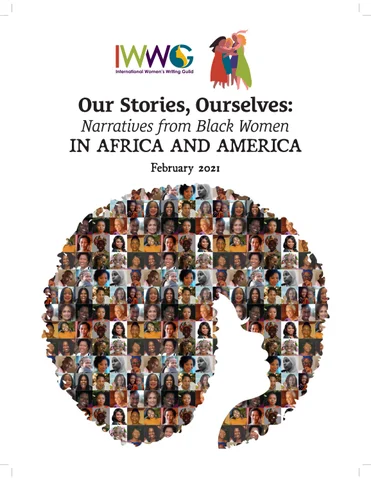Black /Blak/: Relating to Black people, Black culture
- Christie A. Cruise, PhD

- Mar 11, 2024
- 2 min read
The history of Black people extends far beyond the year 1619 when the first enslaved Africans were brought to the New World to provide the free labor that would build what is now the United States of America. While that moment marked a painful chapter in our history, it is essential to recognize that the lives and experiences of Black folk are deeply rooted in a rich and diverse cultural tapestry that goes beyond the shackles of slavery. Our culture is not just a footnote in the pages of history; it is the very essence of American culture itself. Black culture is the seasoning that adds flavor to the dish of the United States, inspiring the world and keeping the nation relevant.

The African diaspora has played a significant role in shaping Black culture. From the rhythmic beats of African drums to the vibrant traditions carried across generations, our heritage is a mosaic of influences from different corners of the diaspora. This diversity has contributed to the resilience and creativity that defines Black culture, making it an integral part of the broader American experience. To understand America, one must embrace the contributions of Black culture. It is not a separate entity, but an inseparable thread woven into the fabric of the nation. From music and dance to fashion and language, the impact of Black culture is omnipresent. It is in the jazz that fills the air, the hip-hop that echoes through city streets, and the literature that tells stories of struggle, triumph, and resilience.
The poems in the “Black” section of “Thick Black Lines” were inspired by and written during a period of intense racial injustice marked by the tragic murders of George Floyd, Breonna Taylor, and Ahmaud Arbery. This was a particularly difficult time in our country as we were amid a global pandemic and ordered to shelter in place. I can remember being immobilized by sadness and anger as the videos of Black bodies being slain played over and over on social media and news outlets across the world.
"Black" is not just an artistic endeavor but a call to the consciousness of humanity. It encapsulates pleas and prayers, protest cries, and marching songs. The work beckons us to ponder a fundamental question: Are we our brother's and sister's keepers? In the face of adversity, it challenges us to unite, uplift, and empathize with one another.

As we reflect on the lives and experiences of Black folk, it is crucial to acknowledge the enduring legacy that predates 1619. Black culture is not just a historical artifact; it is a living, breathing force that continues to shape the world. "Thick Black Lines" and the poems in "Black" remind us of the power of art and expression in times of turmoil, urging us to stand together as keepers of each other's humanity.
Two of the poems featured in “Black” were published in 2020 and 2021. “Other” was published in 2020 in Remington Review. “This, Is America” was published in 2021 in Our Stories, Ourselves: Narratives from Black Women in Africa and America.











Comments